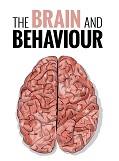 Common causes of brain damage include:
Common causes of brain damage include:
Abscesses – brain abscesses are areas of the brain where there is infection, including pus and inflamed tissue. They are not common but they are life threatening. They often occur after an infection, usually in a nearby area, such has the ear, sinus or dental infection. They can also appear after surgery or injury to the skull.
Cerebral infarction – infarction is the death of tissue. A cerebral infarction is also known as a stroke and is a brain lesion where a cluster of brain cells die when they do not get enough blood.
AVMs (anteriovenous malformations) - are types of brain lesion that occur early in development. The arteries and veins in the brain grow in a tangle and form fistulae. The arteries are not as strong as normal and the veins enlarge because of the constant flow of blood from arteries through the fistulae. These vessels can then rupture and leak blood into the brain. The brain may also not receive enough blood to function properly. Damage to the brain can cause seizures as a first symptom of an AVM.
Tumours - are clumps of cells that grow abnormally. Some are cancerous, some benign. They can start in the brain or spread from other areas of the body (metastatic).
Multiple sclerosis – is a condition where the immune system attacks and damages the nerve linings of the spinal cord and brain. This makes it difficult for messages to be sent and received properly between the brain and the rest of the person’s body.
Cerebral palsy - is a lesion that occurs whilst the baby is still in the womb. The lesion affects the child’s ability to move, communicate and perform other related skills. Many children with cerebral palsy have normal intellectual functioning.
Brain lesions are normally diagnosed by CT and MRI imaging to find out the size, location and characteristics of the lesion. Blood tests and other tests can also be done for signs of infection.
Learn more -See our courses on biopsychology and neuropsychology click here